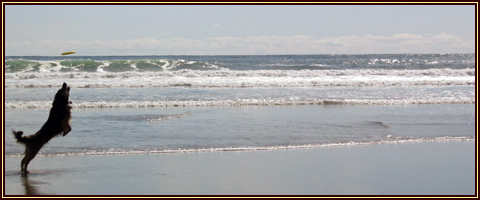The Right Diet for Your Ferret
A ferret’s diet is crucial for longevity, without a proper diet ferrets are at risk for serious health problems. Ferrets are meat eaters and cannot survive without a high-protein, lower-fiber diet.
Until mid-1980’s premium cat food was the only choice for feeding pet ferrets. High-quality cat foods are still acceptable for ferrets, but there are numerous brands of ferret foods that provide the higher-quality fat needed, as well as lower carbohydrate content.
Ferrets need this combination of fat and lower carbohydrates in order to achieve a maximum life span. It is particularly important that a kit (baby) ferret be fed this type of diet. The right ferret food will have good carbohydrate ingredients such as rice flower or brewer’s yeast with at least 35-40% protein and 18-30% fat, 2% fiber, need to contain 21 amino acids, and less than 7% ash level.
Also, some ferret foods are made with frozen fish that has been poorly processed, and your ferret won’t eat it. Some ferrets are so finicky they will refuse to eat to the point of starvation. High quality ferret food is usually more expensive than high quality cat food, but ferrets eat minimal amounts of the food, which brings down the overall cost. Ferrets do not need to take supplements if they are fed healthy diets.
A ferret has to eat at least twice a day in order to gain the calories needed to sustain a healthy life. Ferrets are relatively small animals so their food portions should be small too. If a ferret is fed a moist diet the food is only good for about forty five minutes, soon after the food should be removed.
You might also want to consider a dry pellet diet. A dry pellet diet can be left in the cage all day. Dry pellet food also helps to clean the ferret’s teeth. Ferrets on dry diets must have fresh water all the time. Ferrets prefer to drink from a dish rather than a water bottle, but if water is given in a dish it should be changed a few times a day to ensure purity.
Giving your ferret treats in not a necessity, but can be useful with housebreaking your ferret. Cooked eggs and meats are the best choices for a snack. Avoid fruits because they are high in sugar, candy, dairy products such as ice cream and milk, nuts and nut products; these products will cause nutritional problems.
Some health problems include malnutrition, obesity, tooth decay, diarrhea, intestinal blockage, insulinoma, and hypoglycemia. Use treats sparingly because they may cause your ferret to refuse to eat its normal daily diet. Vegetables or grains should be avoided at all cost because ferrets do not digest them well. Onions are toxic to ferrets.
Proper nutrition is essential for a ferret to live a healthy life. It will minimize the risk for serious life-threatening illnesses and ensure your ferret is happy and comfortable. Ferret owners have a reputation for showing lots of affection towards their pets, but the best way to show love to your ferret is with a proper diet.
For more information about the proper ferret diet visit Ferret-Care-Center.com.







